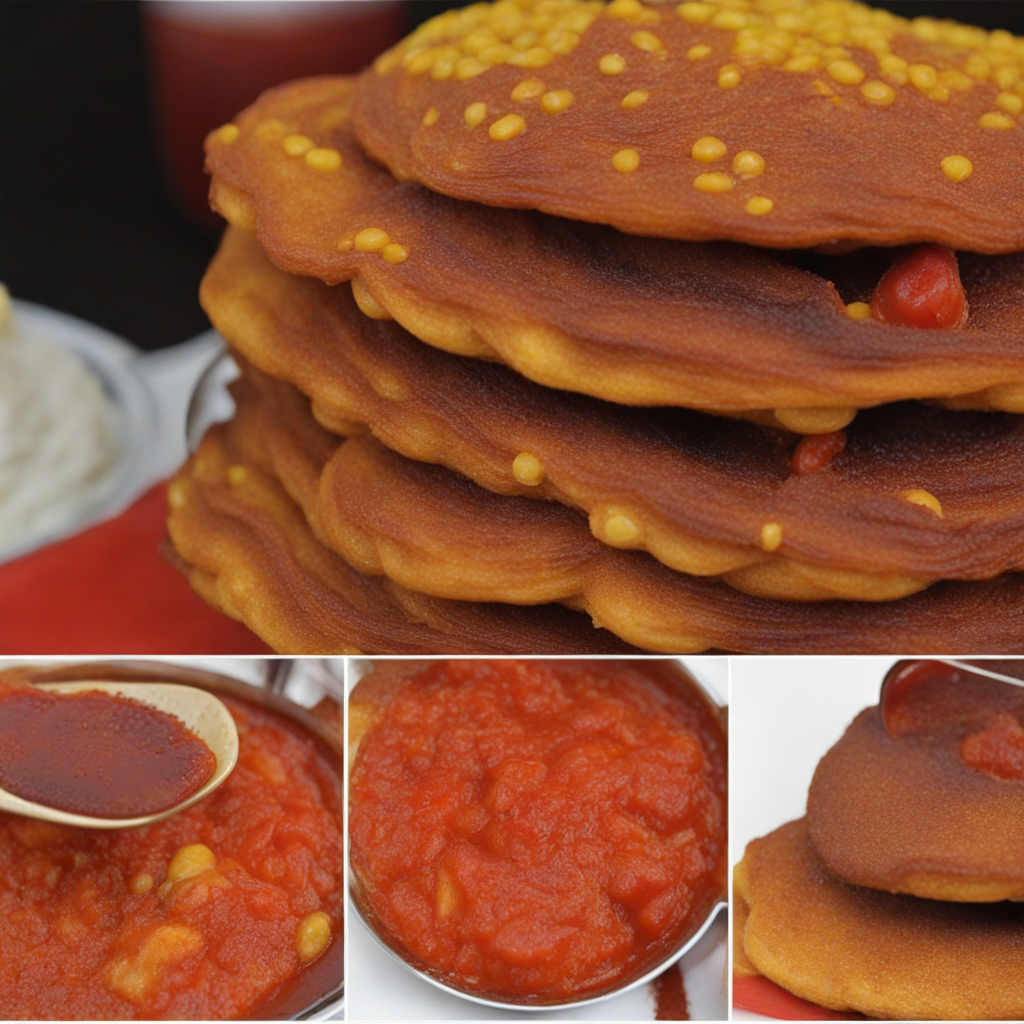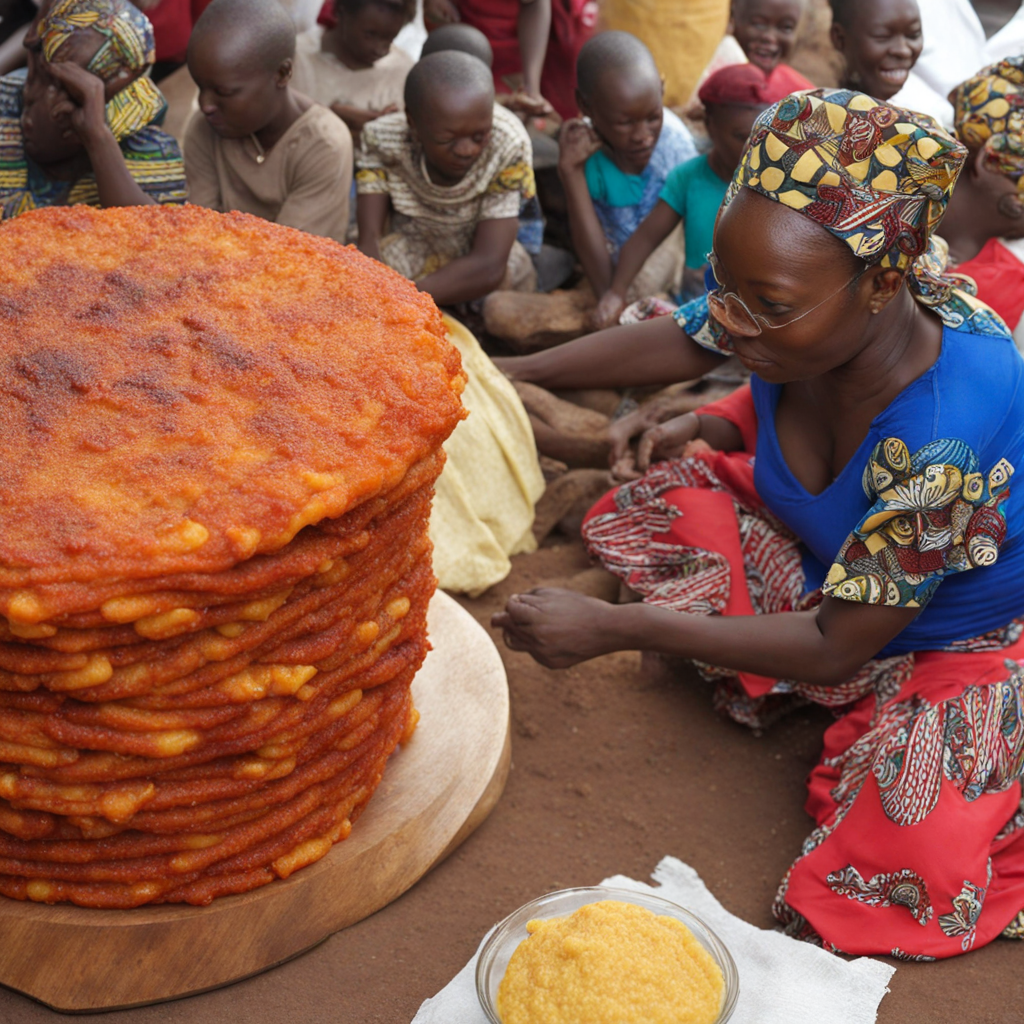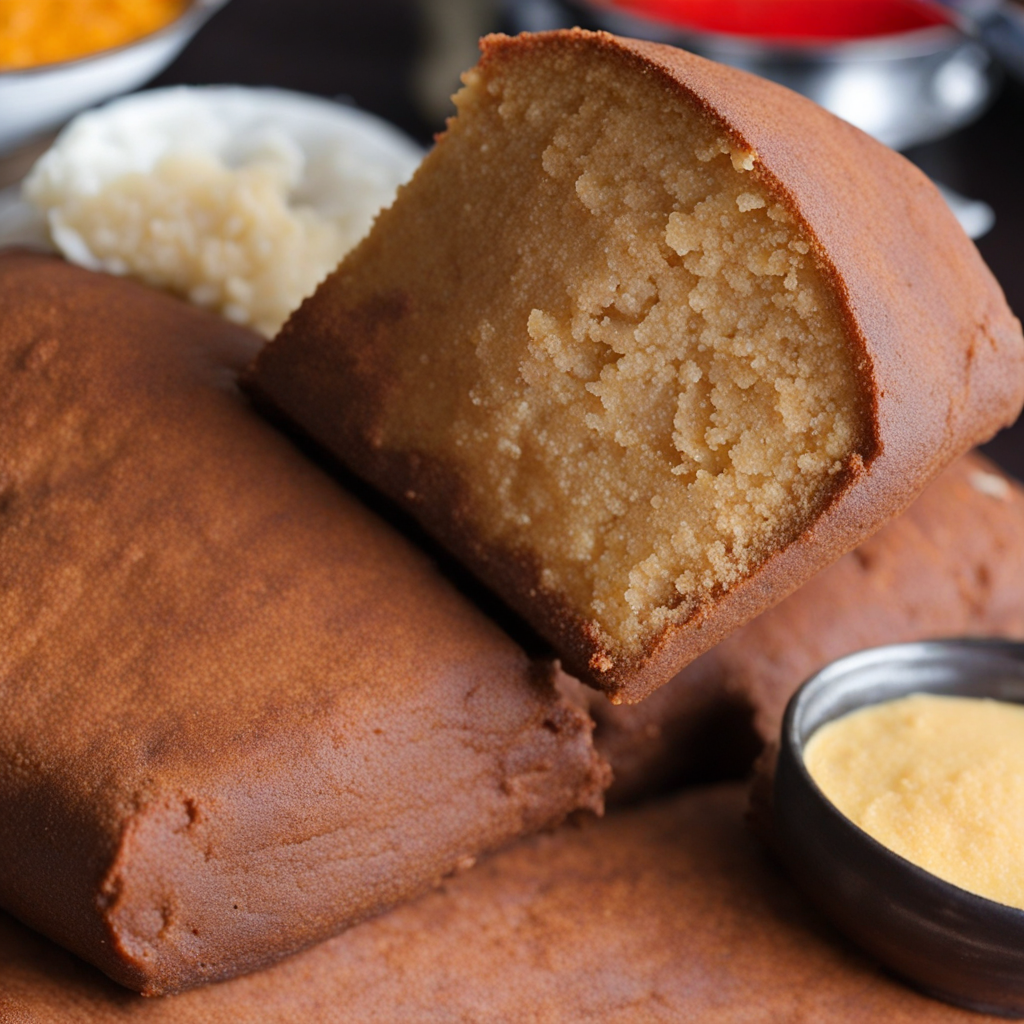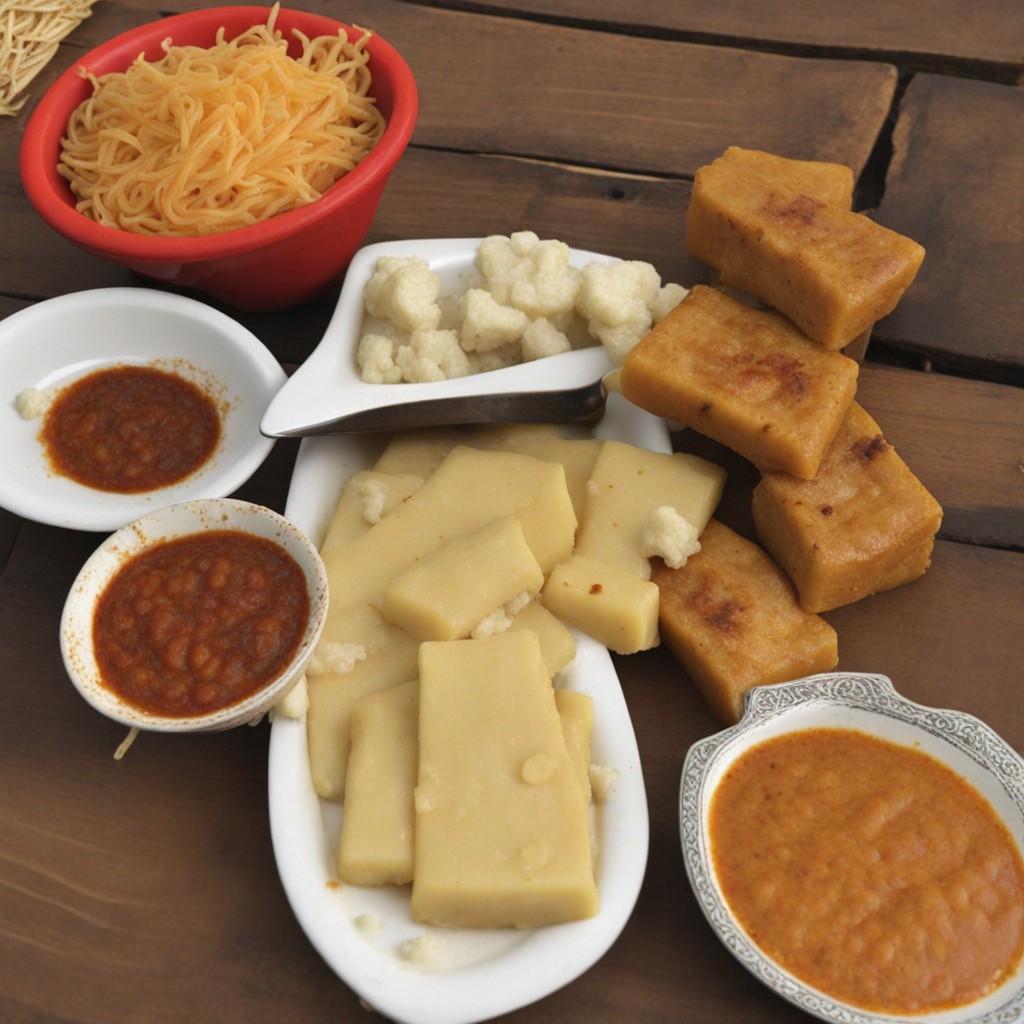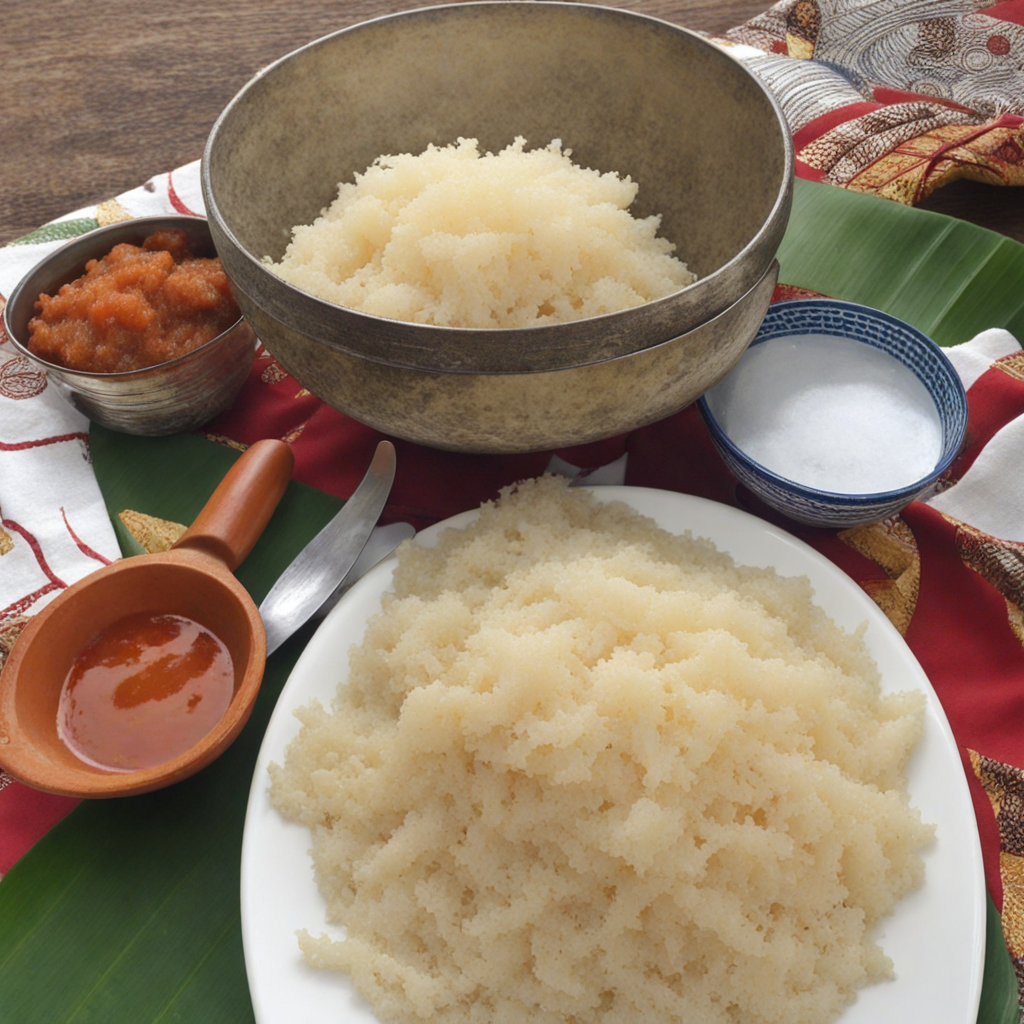Djenkoume
Djenkoume is a traditional dish from Benin that captivates the senses with its unique blend of flavors and textures. Made primarily from cornmeal, this delectable dish has a smooth, creamy consistency that melts in your mouth. The cornmeal is often combined with water and a touch of salt, then cooked to create a thick porridge-like base that serves as the foundation of the dish. The preparation involves a slow cooking process, allowing the cornmeal to absorb the flavors of any added ingredients, making each bite a delightful experience. What sets Djenkoume apart is its versatility and the variety of accompaniments that can elevate the dish. It is commonly served with rich sauces, such as a spicy pepper sauce or a savory vegetable stew, which add layers of flavor and complexity. The combination of the plain, soft cornmeal with the bold and aromatic sauces creates a delightful contrast that is both satisfying and comforting. The dish is often enjoyed with fingers, allowing you to savor the tactile experience as well as the taste. In addition to its flavor profile, Djenkoume is a reflection of the vibrant culture and culinary heritage of Benin. It is often prepared for special occasions and gatherings, serving as a communal dish that brings people together. The warmth and hospitality associated with sharing Djenkoume highlight its role not just as a meal, but as a symbol of connection and community. For those looking to discover new tastes, Djenkoume offers a delicious glimpse into the rich culinary traditions of West Africa.
How It Became This Dish
Djinkoumè: A Culinary Journey Through Benin Origins and Ingredients Djinkoumè, a traditional dish from Benin, reflects the rich tapestry of the country's culture, history, and diverse culinary practices. This dish primarily consists of fermented corn, which is ground into a flour and then transformed into a thick porridge or paste. While the basic concept of fermented corn can be traced back to ancient agricultural practices across West Africa, Djinkoumè holds a unique place in Benin’s gastronomic heritage. The origins of Djinkoumè can be linked to the indigenous peoples of the region who cultivated maize and other grains long before the arrival of European colonizers. The fermentation process itself is a critical aspect of the dish, as it not only enhances the flavor but also improves the nutritional profile of the corn. Fermentation has been a fundamental technique in many African cuisines, allowing for preservation and the development of probiotics beneficial for gut health. In Benin, the use of locally sourced ingredients such as maize, water, and sometimes spices reflects the agricultural practices of the communities. While maize is the primary ingredient, variations of Djinkoumè can include other grains or legumes depending on regional availability and personal preferences. Cultural Significance Djinkoumè is more than just food in Benin; it is a symbol of community, tradition, and identity. It plays a vital role in various social and cultural contexts. The preparation and consumption of Djinkoumè often bring families and communities together, especially during significant celebrations, rites of passage, and festivals. Sharing this dish is a way to express hospitality and strengthen social bonds. In many communities, the preparation of Djinkoumè involves the participation of multiple generations, where knowledge and techniques are passed down from elders to younger members. This act of cooking together fosters a sense of belonging and continuity, reinforcing the importance of culinary traditions in maintaining cultural identity. Moreover, Djinkoumè holds a place in the spiritual life of the people. It is often associated with rituals and offerings to ancestors or deities, highlighting its significance beyond mere sustenance. The dish can be seen as a medium for expressing gratitude and reverence within the cultural framework, emphasizing the connection between food, spirituality, and community. Development Over Time Like many traditional dishes, Djinkoumè has evolved over time, influenced by various factors including globalization, urbanization, and economic changes. Historically, Djinkoumè was prepared using labor-intensive methods that involved soaking, fermenting, and grinding the maize by hand. The process required considerable time and effort, which often made it a communal activity. With the advent of modern technology, particularly in urban areas, the method of preparation has become more streamlined. The introduction of electric grinders and the availability of pre-packaged fermented flour have made it easier for people to prepare Djinkoumè. While this convenience has made the dish more accessible, it has also sparked debates about the authenticity and traditional values associated with its preparation. Despite these changes, many families continue to adhere to traditional methods, valuing the authentic taste and cultural practices involved. This tension between modern convenience and traditional authenticity reflects broader discussions within culinary practices worldwide, where the preservation of heritage often clashes with contemporary lifestyles. Additionally, Djinkoumè has begun to gain recognition beyond the borders of Benin. As West African cuisine continues to capture international interest, traditional dishes like Djinkoumè are being highlighted in culinary festivals, cooking classes, and restaurants. Chefs and food enthusiasts are exploring ways to incorporate Djinkoumè into fusion dishes, which has contributed to its growing popularity. Contemporary Relevance In recent years, Djinkoumè has also been embraced as part of the global movement towards sustainable eating and the celebration of local ingredients. As awareness about the environmental impact of food production grows, there is a renewed appreciation for traditional dishes that utilize locally sourced and fermented foods. Djinkoumè fits neatly into this narrative, as it embodies principles of sustainability and health through its use of maize and natural fermentation. Furthermore, as the world becomes more interconnected, Djinkoumè serves as a culinary ambassador for Benin. It offers a glimpse into the country’s rich cultural heritage and agricultural practices. Social media platforms and food blogs have played a significant role in showcasing Djinkoumè, allowing people from different backgrounds to engage with and appreciate Benin’s culinary landscape. Conclusion Djinkoumè is more than just a dish; it is a living testament to the history, culture, and identity of the people of Benin. From its origins in ancient agricultural practices to its contemporary relevance in a globalized world, Djinkoumè embodies the resilience of traditional foodways. It is a dish that has adapted over time yet remains rooted in the values of community, sustainability, and cultural expression. As the world continues to explore and celebrate diverse cuisines, Djinkoumè stands out as a symbol of Benin’s rich culinary heritage, inviting both locals and visitors to partake in a shared experience of taste, tradition, and togetherness. Whether enjoyed at a family gathering, a local festival, or in a modern restaurant setting, Djinkoumè serves as a reminder of the power of food to connect people across generations and cultures.
You may like
Discover local flavors from Benin


